
Colin Powell (VEERAMANI)
Colin Powell had a prominent (and popular) career in military and public service, and eventually rose to the rank of a four star general. He fought in two tours in Vietnam, served as national security advisor under Reagan, chairman of Joint Chiefs of Staff under senior Bush and Clinton, and secretary of state under junior Bush. He resigned quietly from the junior Bush administration in 2004. Colin Powell is a superstar.

globalization (VEERAMANI)
Globalization is the movement that life experiences, through the spreading and collaboration of world nations and their ideals, are becoming standardized.

George Herbert Walker Bush (ROSS)
Was the 41st president of the United States. Prior to his presidency, he was Ronald Reagan's vice president and the director of the CIA. During his term, he sent troops to overthrow Manuel Noriega in Panama and led the US to success in the Gulf War, dorcing Iraq and Sadam Hussein to withdraw from Kuwait.

Americans With Disabilities Act (ADA)(VEERAMANI)
ADA is a federal law active in the workplace that prohibits the discrimination of individuals with hadicaps, which includes prohibition of exclusion during the hiring process and making accommodations for handicaps in building layouts.
Clarence Thomas nomination (VEERAMANI)
On July 1, 1991, senior Bush nominated Clarence Thomas to the Supreme Court to replace Thurgood Marshall, who announced his retirement. During the nomination proceedings, which were controversial due to Thomas's view on issues such as abortion, allegations that were made about Thomas leaked to the press which started a media frenzy. Clarence Thomas was eventually confirmed by a narrow margin.

Panama Invasion (VEERAMANI)
The Panama Invasion was a mission enacted by senior Bush to find and capture Panamanian Defense Forces chief General Manuel Noriega, who was accused of electoral fraud and drug trafficking. This mission resulted in many American casualties and over a thousand deaths of Panamians.

Persian Gulf War (ROSS)
Sadam Hussein, dictator of Iraq, invaded Kuwait in 1990. American interests in oil were threatened. The US under Bush launched Operation Desert Storm on January 18, 1991 only after Iraq failed to meet the deadline for peaceful withdrawal. In a multilateral approach involving other countries, the US defeated Iraq and liberated Kuwait. Hussein remained in power, which would led to a second war under the George W. Bush administration.

Operation Desert Storm (ROSS)
Operation Desert Storm was the act of US troops going into Kuwait in 1991 to liberate it from Iraq because of oil interests. The US gave Iraw a chance to withdraw peacefully, but when they did not, the US resorted to war, which the US ending up winning.
.jpg/220px-Iraq,_Saddam_Hussein_(222).jpg)
Saddam Hussein (BICHE)
President of Iraq, fought with Iran and invaded Kuwait, first supported by US but when Kuwait was invaded forces were sent to Iraq by president Bush
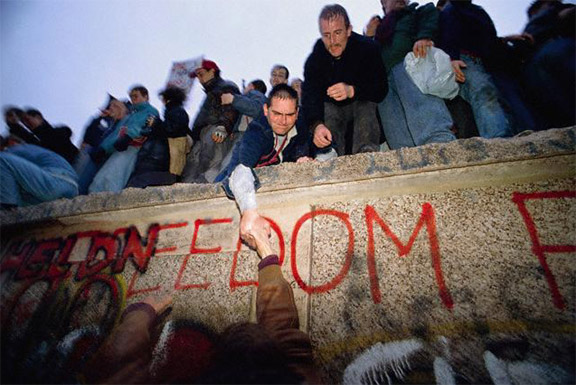
Fall of Berlin Wall (VEERAMANI)
The Berlin Wall "fell" in 1989, which basically meant that border patrols were opened up along the wall, which allowed anyone to pass who wanted to go through. The official "fall" of the Berlin Wall commenced on June 13, 1990 when they started to tear it down.

end of the Cold War (VEERAMANI)
The end of the Cold War was marked by the "end of Communism". In 1985, when reformer Mikhail Gorbachev assumed power over the Soviet Union, he ended the 40-year long Communist dictatorship. He basically ended the Cold War because he abandoned Communism (and the Brezhnev Doctrine).
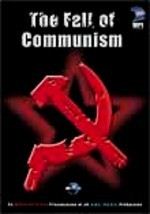
fall of Communism (VEERAMANI)
The fall of Communism started in 1985 when Gorbachev assumed control over the Soviet Union, but became fully developed in 1989, with the fall of the Berlin wall. Soon thereafter, many European countries were holding elections to put non-Communists in power.

Tiananmen Square Demonstrations and Massacre (VEERAMANI)
(also known as the June Fourth incident) These demonstrations were an act of civil disobedience (in China) where students protested against the PRC and for democracy in Beijing. The government sent their military to quell protests, and by the end of the demonstrations, close to 7,000 people had been "massacred".

START Treaty (ROSS)
Was the Strategic Arms Reduction Treaty signed by George Bush and Mikhail Gorbachev in 1990. This treaty cut the nuclear weapon arsenal of both nations by 30%. This was the beginning of later Soviet-US agreements that led to the end of the Cold War and thawing of US-Soviet relations.

William J. Clinton (ROSS)
Was the 42nd president. Former governor of Arkansas, Clinton was a moderate Democrat who achieved gun control measures, the biggest economic boom in the nation's history, acts supporting off for family leave, and welfare reform during his two terms. Clinton also advocated for free trade and led the US in joining NAFTA, lifting trade barriers between the United States, Canada, and Mexico. His affair with Monica Lewinsky led him to be the second president to be impeached, for perjury and obstruction of justice.

H. Ross Perot (BICHE)
3rd party Texan millionaire, grassroots movement in 1992 presidential election, hurt HW Bush and had "strongest third party finish in 80 years"

Clinton Health Care Plan (VEERAMANI)
Clinton tried to provide universal healthcare, but did not succeed. There was very little congressional involvement in the plan, and Hillary was set as the director. The plan was very convoluted and a little too ambitious, meaning that it would lead to higher tax rates and more governmental involvement in health decisions. Congress put some small parts of the plan into action.

Contract With America (PENG)
During the 1994 elections, republicans candidates for the House of Representatives signed a "contract with America" pledging to inact its legislations if their party won the majority. The Contract with America promised to support a balanced-budget amendment, welfare reform, and congressional term limits, among other items.

Don't Ask, Don't Tell Policy (VEERAMANI)
This refers to the military policy (began 1993) that stated that men and women could not be discharged for homosexuality - rather, they could only be discharged by "committing" homosexual acts. Because of this, military officers do ask about sexual orientation and only mount an investigation where there is substantial proof of homosexual acts. It was repealed on September 20, 2011.

Oklahoma City Bombing (BICHE)
April 19, 1995
Terrorist attack on federal building, at the time largest terrorist attack in US history, committed by Timothy McVeigh, militia members

Welfare Reform (BICHE)
At first vetoed by Clinton, then enacted Personal Responsibility and Work Opportunity Reconciliation Act which provided grants to states to aid "needy families," "lifetime limit" on aid (5 yrs)

Clinton Impeachment (ROSS)
Clinton became the second president to be impeached in the nation's history. He was impeached for perjury and obstruction of justice, but was not convicted and the Senate ruled that these crimes were not cause for his removal from presidency because they were not high crimes or misdemeanors. Clinton lied under oath while being questioned about his affair with White House intern Monica Lewinsky.

New World Order (VEERAMANI)
The New World order is a political state marked by any large shift in the balance of world powers or of the ideals of world powers.

Bosnian Intervention (VEERAMANI)
The Bosnian intervention was conducted by NATO in order to promote peace in Bosnia, during the Bosnian and Yugoslav wars.

NAFTA (ROSS)
North American Free Trade Agreement. Clinton led the US into joining this because of his advocacy for free trade and globalization. Lifted trade barriers between US, Canada, and Mexico.

free trade/fair trade (BICHE)
Free trade- international trade without government interference
Fair trade- enforced wage standards in other countries

WTO (BICHE)
About 135 nations, tariff reductions, trade supervision
founded 1995
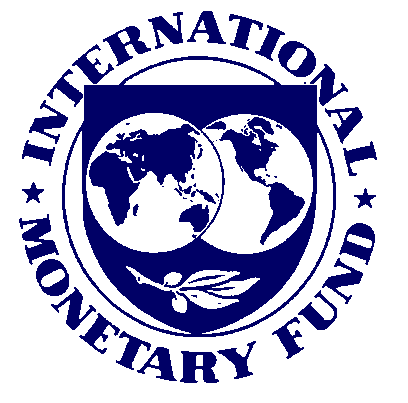
IMF (VEERAMANI)
The IMF is a coalition of 187 countries that seek to promote "global monetary cooperation, secure financial stability, facilitate international trade, promote high employment and sustainable economic growth, and reduce poverty around the world" (IMF.org)

"new immigration" (PENG)
This refers to the tremendous surge of immigration the late 20th century due to globalization. 20 million immigrants arrived between 1980 and 2005, supassing the previous preak immigration. In addition, the country of origin differed. Before 85% were Europeans. Now, half were Asians and nearly 40% were Latin Americans. Immigration changed the ethnic composition of the nation.

Election of 2000 (ROSS)
The election of 200 was very controversial because although the democratic candidate Al Gore won a larger percentage of popular votes, republican candidate George W. Bush won more electoral votes, making him president.

"compassionate conservatism" (VEERAMANI)
Compassionate conservatism was what junior Bush's campaign was based on (copied Clinton somewhat). He wanted to eschew the far right, tried to compromise on Dem. issues (like education), and promised federal budget and tax cuts.
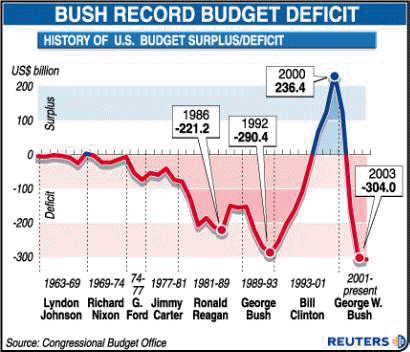
Bush Tax Cuts (PENG)
George W. Bush made changes to the U.S. tax code and in general lowered tax rates. In 2001, he signed a bill reducing taxes over the next ten years by 1.35 trillion and in 2003, a tax law slashed another 320 billion. The laws favored the rich, provided benefits for married couples and families with children, adn offered tax deductions for college purposes. Although the adminstration insisted tax cuts would promote economic growth, opponenets stressed inequities in tax cuts.

NCLB (BICHE)
Proposed by George W Bush's administration in 2001, required schools to meet testing standards, poor schools were penalized and parents could send children elsewhere, much bipartisan support
Prescription Drug Benefit Plan (PENG)
George W. Bush signed a bill authorizing prescription drug benefits for the elderly and at the same time expanding the role of private insurers in the Medicare system. While democracts were strongly opposed to this, legislators of both parties worried about the cost of the new drug benefit (estimated $500 billion). In addition, the law's requirement that beneficiaries choose from dozens of private insurance plans made the program confusing. Still, 80% of elderly who signed up for this benefit were somewhat satisifed.

Hurricane Katrina Disaster (PENG)
The Bush Administration found little approval in its handling of Hurrican Katrina. Federal, state, adn local officials faield the citizens of New Orleans by not building the levees to withstands such a deluge and failing to rescue the citizens were the levees broke and flooded their homes. The government did not protect its citizens from natural disasters, one of its foremost obligations. The poor New Orleans residents were also financially unable to move out. This left thousands waiting in anguish in dire situations. The disaster highlighted the sevee injustices and deprivations remaining in Americans socieyt.

9/11 (PENG)
The most deadly attack ever launched on American soil. Nineteen terrorists from Osama bin Laden's Al Qaeda international terrorist network, hijacked four planes and flew three into the twin towers of The world Trade Center adn the Pentagon.These attacks to almost 3 thousand lives, stunning the country. They represented the negative impacts of globalization: Islamis extremists were engraged by teh spread of Western culture in teh Muslim world.

Invasion of Afghanistan (PENG)
Provoked by 9/11, Bush invaded Afghanistan to capture Osama bin Laden. Although the U.S. did not capture him, it did topple the Taliban government and disrupt Osama bin Laden's Al-Qaeda network. U.S. and Britain bombed Afghanistan and aided Northern Alliance, teh Taliban gov't's main opposition.
Al Qaeda (BICHE)
Osama Bid Laden's jihadist terrorist coalition, attacks in US were responded to with War on Terror

Osama bin Laden (BICHE)
Founder of Al Qaeda, Saudi-born millionaire, extremist
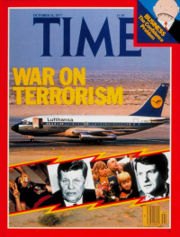
War on Terrorism (PENG)
Glogal military, political, legal and ideological struggle against terrorism. This was focused on eliminating Al-Qaeda.
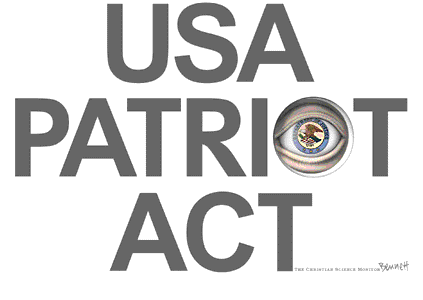
Patriot Act (BICHE)
2001- Gave government power to minor suspected terrorists, later asked for revision by liberals and conservatives

Taliban (BICHE)
Fundamentalists that controlled Afghanistan in 1995, opposed Northern Alliance
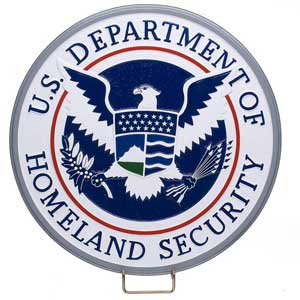
Department of Homeland Security (VEERAMANI)
The DHS is a department founded solely to keep America safe from natural or man-made disasters. It was created after the 9/11 attacks (under junior Bush).

Iraq War (PENG)
Bush administration moved deliberately to apply the doctrine of preemption to Iraq. Saddam Hussin appeared to be in violation of UN resolutions from the 1991 Gulf War requiring IRaq to destroy and stop further development of nuclear, chemical, and biological weapons. When he refused to comply with UN inspections, the Bush administration along with Britain invaded Iraq. BUsh had also (false) claimed that Hussein was connected to Al Qaeda and possessed weapons of mass destruction.

"weapons of mass destruction" (PENG)
Weapons of high order destruction, including nuclear, biological, chemical, radiological weapons. Bush claimed that Hussein was in possession of these, justifying his invasion of Iraq.
preemptive war doctrine (VEERAMANI)
(Bush Doctrine) It consisted of four parts: (In junior Bush's words) It set out to "Make no distinction between terrorists and the nations that harbor them--and hold both to account."; "Take the fight to the enemy overseas before they can attack us again here at home."; "Confront threats before they fully materialize."; "Advance liberty and hope as an alternative to the enemy's ideology of repression and fear."

2004 Election (PENG)
Bush vs. Kerry (democratic). Kerry criticized Bush's unilateral foreign policy and the administration's conduct of the war. He narrowly lost the popular vote and the electoral college vote.